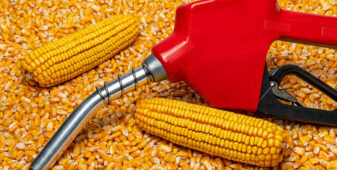Insight Focus
- The collapse in major highway systems did not happen in sugar-producing regions
- Palm oil yields may be reduced
Guatemala’s Rain Cycle
Guatemala is a tropical country with just two seasons: a dry season and then a rainy season. The dry season runs from November to April, and the rainy season from May to October. June is normally the wettest month. Guatemala received an excessive amount of rain this June. Reports state that around 437 millimetres of rain fell in Guatemala this June. This may seem like a lot, but it is less than in June 2020, when 632 mm fell. The heavy rains of June 2020 did not affect Guatemalan sugar cane production in the 2020-21 season. Compared with the previous three seasons, the 2020-21 season produced the second largest amount of cane per hectare. Then the 2020-21 season was right on average with the previous three years for weekly cane crush per week. Lastly, the quality of the sugar did not diminish in 2020-21. The average sucrose yield for the 2020-21 season was exactly on par with the previous three seasons.
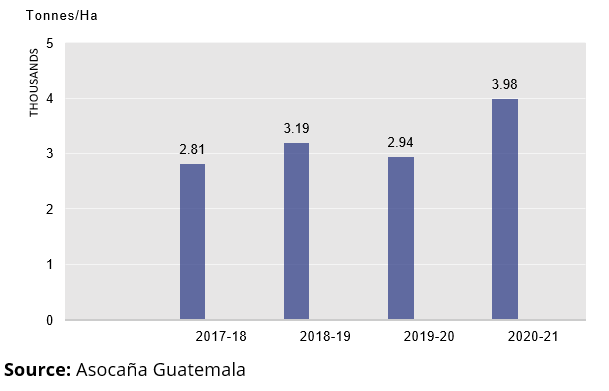
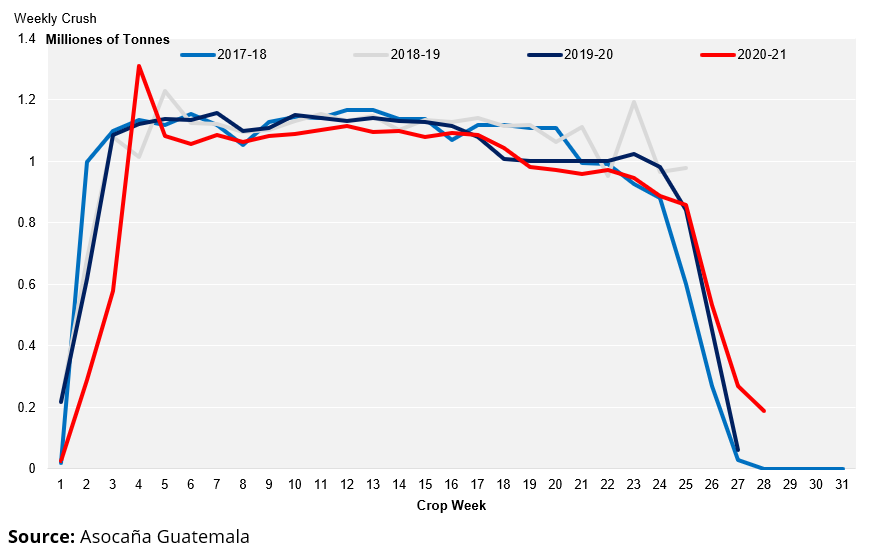
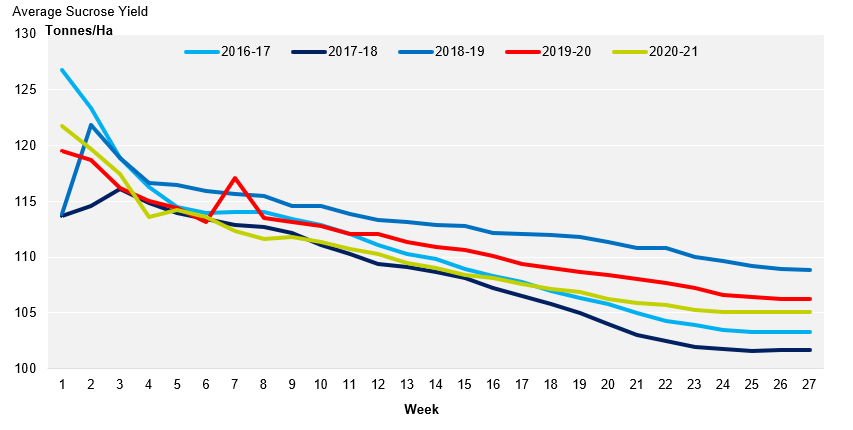
The heavy rain caused various highway and infrastructure systems to collapse. According to media reports, at least 23 various sections of highway and road were damaged. This collapse in the infrastructure has limited the movement of around 136,000 Guatemalans. Most of the major highway systems that were damaged are in the northern departments of Guatemala including: Alta Verapaz, Zacapa, Izabal, and Huehuetenango. These damaged roads should not affect the transportation of sugar to Puerto Quetzal since most of the 11 Guatemalan sugar mills are in the southern departments of Retalhuleu, Suchitepéquez, Escuintla and Santa Rosa.
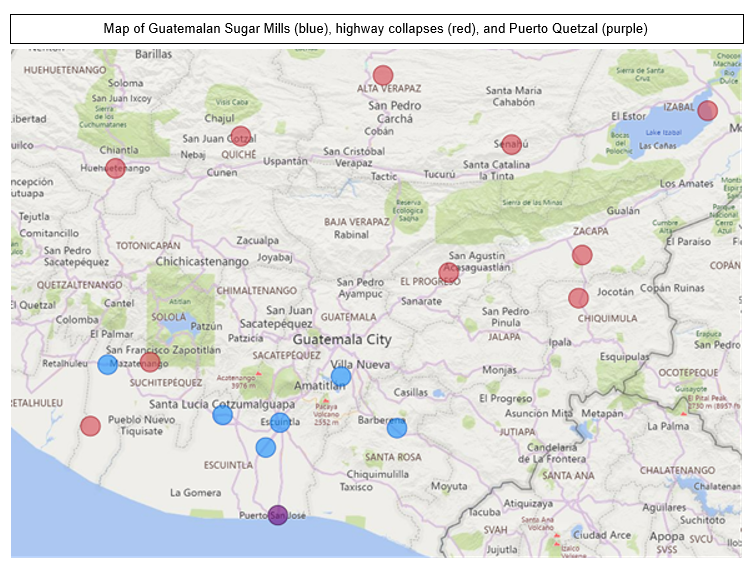
Heavy Rains May Hit Palm Oil Yields
Palm oil was a major Guatemalan crop whose yield was reduced by the strong 2020 rain cycle. The yield fell year on year in the 2020-21 season and even more in the following season. Also, the 5-year average palm oil yield between 2017-18 and 2021-22 was 5 metric tonnes a hectare. The yield for the 2020-21 season was below average at 4.94 tonnes/ha, was even lower in 2021-22 at 4.89 tonnes/ha. Since Guatemala is the 4th largest exporter of palm oil, this decrease in yield can significantly affect the world market, given that palm oil is used in various goods such as baby formula, shampoo, and margarine.
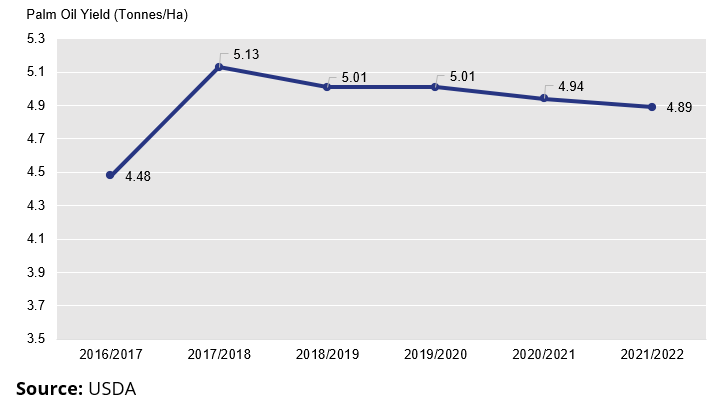
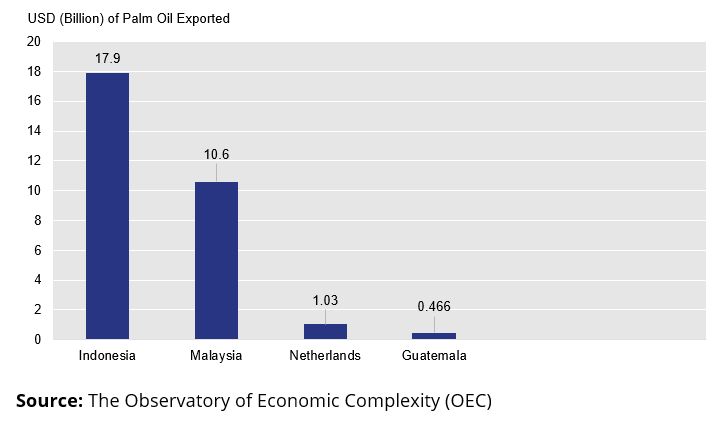
Why there is no reason for the sugar market to worry?
Those interested in Guatemalan sugarcane production should not be concerned about June’s high rainfall because in the past in has not affected yields and the damage to infrastructure should not affect the transportation of sugar to Puerto Quetzal.
Other Insights That May Be of Interest…
Will Mexico Become a Regular World Market Sugar Exporter?
Seafarer Shortage Foreshadows More Freight Bottlenecks
Explainers That May Be of Interest…





